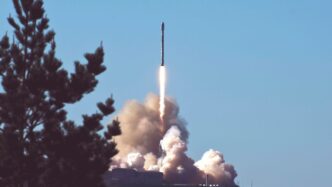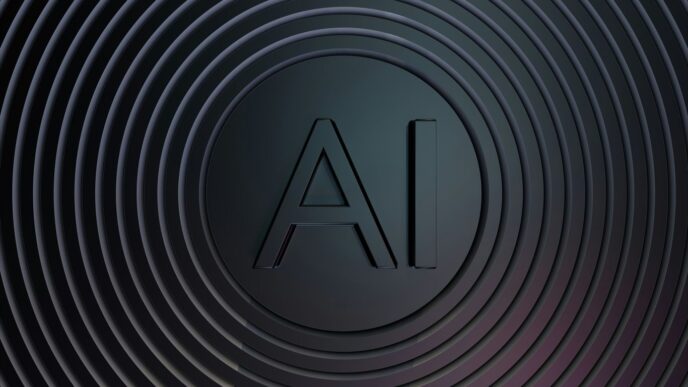FAA Proposes Significant Fines for SpaceX Launch Violations
So, it looks like SpaceX is in a bit of hot water with the FAA again. The Federal Aviation Administration is proposing some pretty hefty fines, totaling over half a million dollars, because they say SpaceX didn’t follow the rules for two launches last year. It’s a pretty big number, and it really highlights the ongoing tension between the agency that oversees these launches and one of the biggest players in the private space game.
Total Proposed Civil Penalties Exceed Half a Million Dollars
The FAA is looking at hitting SpaceX with a total of $633,009 in civil penalties. This isn’t just a slap on the wrist; it’s a significant amount of money that reflects the seriousness with which the FAA views these alleged infractions. This latest proposal marks a substantial financial consequence for the company’s operations.
Allegations Stem from Two Separate 2023 Launch Incidents
These proposed fines aren’t for one single slip-up. They stem from issues that allegedly occurred during two distinct launch events in 2023:
- June 2023 Launch: The FAA claims SpaceX used an unapproved control room and skipped a required readiness poll before liftoff.
- July 2023 Launch: In this instance, the allegation is that SpaceX utilized a rocket propellant facility that had not yet received FAA approval.
SpaceX Faces Over $633,000 in Proposed Fines
To break it down a bit, the FAA has outlined specific penalties for each alleged violation. The total amount proposed is $633,009, which is a clear signal from the FAA about their expectations for compliance within the commercial space sector.
Details of Alleged Launch License Infractions
So, the FAA is saying SpaceX messed up on a couple of launches last year, and now they’re looking at some pretty hefty fines. It all boils down to two main incidents from 2023.
June 2023 Launch: Unapproved Control Room and Skipped Readiness Poll
First up, there was a launch in June 2023 that was supposed to send Indonesian satellites into space. According to the FAA, SpaceX apparently used a launch control room that hadn’t been given the green light. On top of that, they’re accused of skipping a crucial readiness poll that’s supposed to happen two hours before liftoff. The FAA is proposing a $175,000 fine for each of these alleged slip-ups, so that’s $350,000 total for this one event.
July 2023 Launch: Use of Unapproved Rocket Propellant Facility
Then, just about a month later, in July 2023, another launch happened. This time, it was a satellite called Echo-Star 24. The FAA’s claim here is that SpaceX used a rocket propellant facility that wasn’t approved for use. For this particular violation, the proposed civil penalty is a whopping $283,009.
Specific Penalties for Each Alleged Violation
Let’s break down what the FAA is proposing:
- June 2023 Launch (PSN Satria Mission):
- Use of an unapproved launch control room: $175,000
- Failure to conduct the required T-2 hour readiness poll: $175,000
- July 2023 Launch (EchoStar XXIV/Jupiter Mission):
- Use of an unapproved rocket propellant facility: $283,009
The total proposed fines add up to $633,009. SpaceX has a 30-day window to respond to these allegations after receiving the FAA’s official letters.
SpaceX’s Response to FAA Allegations
So, SpaceX isn’t exactly thrilled about these proposed fines from the FAA. It seems like they’ve got a pretty different take on what happened during those launches. Elon Musk himself has been pretty vocal about this, even saying on social media that SpaceX plans to sue the FAA. He’s calling it "regulatory overreach," which is a pretty strong accusation.
Elon Musk Vows to Sue FAA for Regulatory Overreach
Musk didn’t hold back, posting on X that SpaceX will be filing a lawsuit against the FAA. He’s claiming the agency is overstepping its bounds. He even went as far as to suggest that the fines are a form of "lawfare" and that he’s confident that further investigation will reveal "improper, politically-motivated behavior by the FAA." He hasn’t offered any proof for these claims yet, but it definitely shows how serious SpaceX is about this disagreement.
SpaceX Rejects FAA’s Assertions of Violations
SpaceX as a company is also pushing back hard against the FAA’s claims. They sent a letter to some key congressional committees, basically saying they reject the idea that they violated any rules. They pointed out that it’s unusual for the FAA’s Chief Counsel to be quoted in an enforcement matter like this. They feel the FAA’s accusations just aren’t accurate.
Criticism of FAA’s Licensing and Modernization Processes
Beyond just rejecting the specific allegations, SpaceX is also criticizing the FAA’s overall approach to licensing and regulation. They mentioned in their letter that the FAA’s Office of Commercial Space Transportation (AST), which handles these licenses, hasn’t been very efficient. SpaceX feels the AST hasn’t been keeping up with modernizing its rules and processes, making it difficult for companies like theirs to operate smoothly. They believe the FAA’s system is slow and outdated, which they argue is part of the problem.
Here’s a quick look at the proposed penalties:
| Incident | Alleged Violation | Proposed Penalty |
|---|---|---|
| June 2023 Launch | Unapproved control room, skipped readiness poll | $175,000 |
| July 2023 Launch | Use of unapproved propellant facility | $283,009 |
| Total Proposed Penalties | $633,009 |
FAA’s Stance on Safety and Compliance
The Federal Aviation Administration (FAA) makes it pretty clear that safety is their top priority when it comes to commercial space launches. They’ve got this legal duty to keep an eye on companies that have licenses for space transportation, and they’re not messing around with that responsibility. As FAA Chief Counsel Marc Nichols put it, "Safety drives everything we do at the FAA, including a legal responsibility for the safety oversight of companies with commercial space transportation licenses." He also added, "Failure of a company to comply with the safety requirements will result in consequences." It sounds pretty straightforward, right? They’re saying if you don’t follow the rules, there will be repercussions.
Emphasis on Safety Oversight in Commercial Space Transportation
The FAA’s role here is to make sure that when rockets go up, they don’t pose a risk to the public. This isn’t just about making sure the rocket itself doesn’t blow up mid-air, but also about what happens on the ground and how the whole operation is managed. They issue licenses for these launches, and those licenses come with specific conditions. These conditions are designed to manage risks, and the FAA is the agency tasked with making sure those conditions are met. It’s a big job, especially with the commercial space industry growing so fast.
Consequences for Failure to Comply with Safety Requirements
When the FAA finds that a company hasn’t followed the safety rules laid out in their launch license, they have the authority to impose penalties. These aren’t just suggestions; they’re meant to be serious enough to make companies pay attention. The agency has a process for this, which usually involves sending out letters detailing the alleged violations and proposing fines. Companies then have a set amount of time, typically 30 days, to respond. They can choose to pay the fine, contest it, or even request an informal meeting with FAA lawyers to discuss the matter. The proposed fines in this case, totaling over $633,000, show that the FAA is willing to levy significant penalties when they believe safety rules have been broken.
FAA’s Legal Responsibility for License Oversight
At its core, the FAA’s legal responsibility is to oversee the commercial space transportation industry. This means they have to approve launch plans, monitor operations, and investigate any incidents or alleged violations. They are the ones who grant the permission for these launches to happen, and with that permission comes the duty to ensure public safety. This oversight is critical because space launches, while exciting, carry inherent risks. The FAA’s legal framework is designed to balance the promotion of this new industry with the imperative of protecting people and property on the ground. It’s a delicate balance, and the agency’s actions in cases like this highlight their commitment to maintaining that equilibrium.
Historical Context of FAA-SpaceX Regulatory Clashes
This isn’t the first time SpaceX and the FAA have butted heads over launch rules. It feels like there’s a recurring theme here, with the agency often stepping in when it believes SpaceX has bent or broken the rules. These aren’t just minor disagreements; they’ve sometimes led to significant disruptions.
Remember back in August 2023? The FAA actually put a temporary hold on SpaceX’s Falcon 9 rocket launches. This wasn’t a small thing; it meant delays for missions that were already planned. The FAA cited safety concerns, as they usually do, but for SpaceX, it felt like another hurdle.
Here’s a quick look at some past issues:
- Previous FAA Fines: SpaceX has faced fines before for not sticking to the exact terms of their launch licenses. It seems like the agency is always watching, ready to issue penalties when they spot something off.
- Grounding of Rockets: The temporary grounding of the Falcon 9 was a big deal. It showed the FAA’s power to halt operations if they believe safety protocols aren’t being followed. This kind of action can have a ripple effect on launch schedules and company operations.
- Ongoing Disputes: These clashes aren’t isolated incidents. They point to a larger, ongoing tension between SpaceX’s rapid development pace and the FAA’s mandate to oversee safety in commercial spaceflight. It’s a balancing act, and sometimes, it seems like they’re not quite in sync.
It’s clear that the relationship between SpaceX and the FAA has a history of friction. While SpaceX pushes the boundaries of space exploration, the FAA is tasked with making sure it’s done safely and within the established legal framework. This latest round of proposed fines is just another chapter in that ongoing story.
Broader Implications for Commercial Spaceflight
Look, these kinds of fines and disputes between companies like SpaceX and the FAA aren’t just about one or two launches. They really highlight some bigger issues we’re seeing in the whole commercial space industry right now. It feels like the government’s old rules just aren’t keeping up with how fast things are moving.
Impact of Regulatory Hurdles on Launch Timelines
It’s pretty common to hear SpaceX, and other companies too, complain that getting government paperwork done takes way longer than building the actual rocket. This isn’t just a minor annoyance; it can seriously slow down how often we can launch and what we can do in space. Think about it: every delay means less science, fewer satellites, and slower progress on big projects like going to Mars. It makes America look less like a leader when other countries might be moving faster.
SpaceX’s Commitment to Safety Amidst Disputes
SpaceX, for its part, says it’s totally committed to safety. They’ve pushed back hard against these FAA claims, even suggesting they’ll sue for what they call "regulatory overreach." Elon Musk has been pretty vocal about this, saying the FAA is harassing them over minor things that don’t actually affect safety. It’s a tough balancing act, right? Companies want to innovate and launch quickly, but the FAA has a job to do to make sure things are safe for everyone.
The Role of FAA in Ensuring Public Safety in Space Launches
The FAA’s main job here is public safety. They’re responsible for making sure that when a rocket launches, it doesn’t pose a risk to people on the ground or to other aircraft. This means they have to approve a lot of things, from the launch site to the equipment used. While some of the FAA’s rules might seem old-fashioned or slow, they’re in place because space launches are inherently risky. Finding the right balance between letting innovation happen and keeping things safe is probably one of the biggest challenges facing the commercial space sector today.
What’s Next?
So, SpaceX is looking at some hefty fines from the FAA over these launch issues. It’s a pretty big deal, and Elon Musk isn’t happy about it, even saying he plans to sue the agency. This whole situation highlights the ongoing tension between pushing the boundaries in space exploration and making sure everything is done by the book, especially when it comes to safety. We’ll have to wait and see how this plays out, and if it changes how SpaceX and the FAA work together down the road. It’s definitely a developing story in the world of spaceflight.












